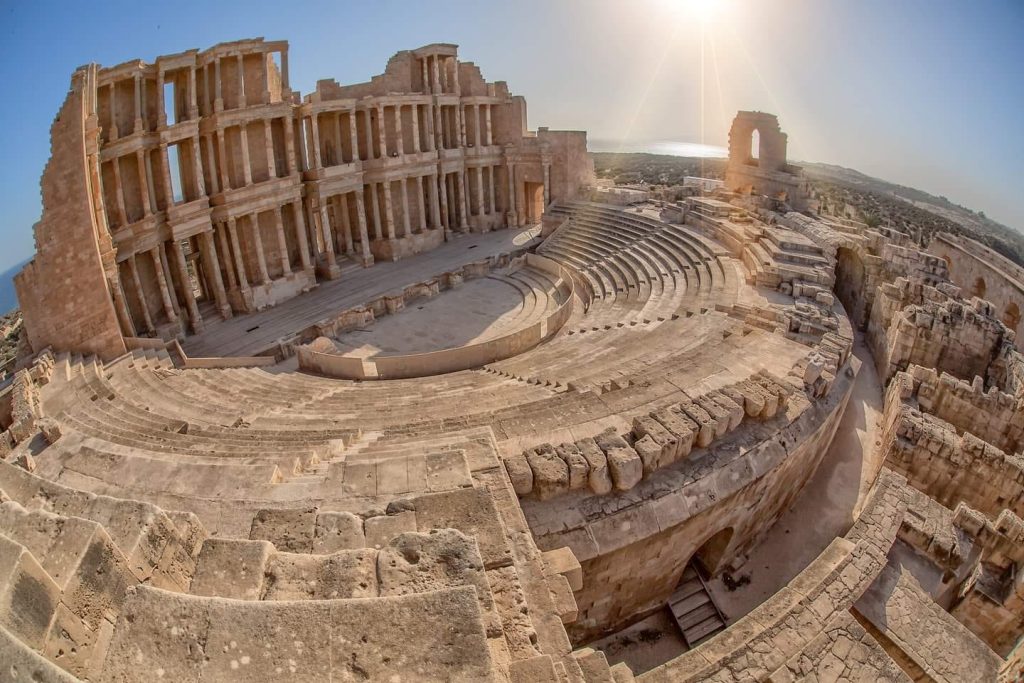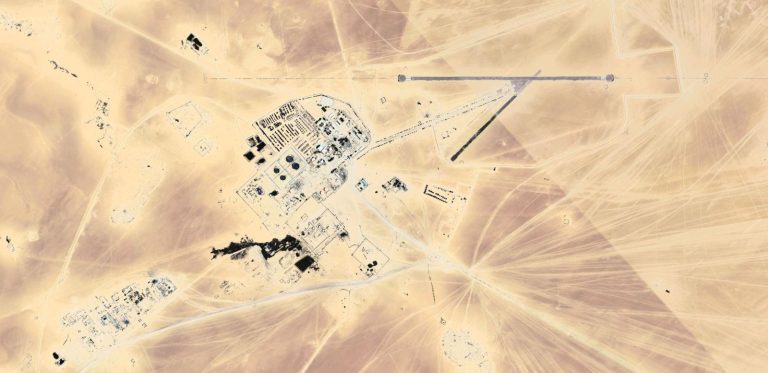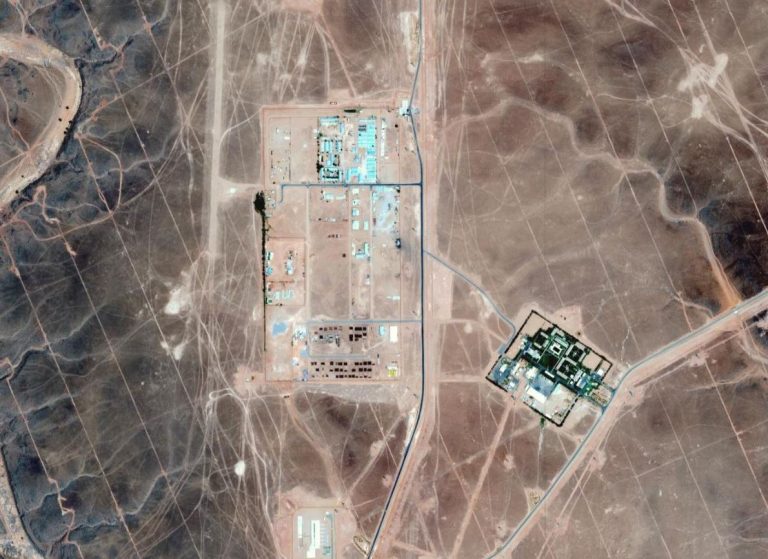Libya presents a wealth of untapped business opportunities, driven by its strategic location and emerging markets. As the nation evolves, the potential for growth spans various sectors including energy, infrastructure, and technology.
At Qabas, we lead the way in navigating Libya’s dynamic business landscape. Based in Libya, our team is dedicated to setting industry benchmarks and delivering innovative solutions tailored to our clients’ unique needs. Our expertise and local presence enable us to identify and capitalise on opportunities that drive success.
Join us as we explore the promising avenues for investment and development in Libya, providing you with the insights and strategies needed to thrive in this vibrant market.
Table of Contents

Economic Overview
Natural Resources
Libya boasts significant natural resources, particularly in oil and gas. The country holds nearly 3% of the world’s proven oil and natural gas reserves. This sector dominates Libya’s economy, contributing substantially to GDP and foreign exchange earnings. Our expertise at Qabas enables us to effectively navigate and leverage these resources for sustainable business growth.
GDP Growth
Libya is forecasted to achieve a GDP growth rate of 7.9% in 2024. This growth is driven by increased private consumption and rising exports. Despite historical political instability and recent natural disasters, the economic outlook remains positive. Qabas capitalises on this growth by providing strategic insights and support to businesses seeking to invest in Libya’s expanding market.
Foreign Exchange Reserves
Libya maintains robust foreign exchange reserves totaling $82 billion. These reserves stabilize the economy and help keep public debt lower compared to neighboring countries. Our financial expertise at Qabas ensures that businesses can effectively manage their investments and operations within Libya’s stable economic environment.
| Economic Indicator | Value |
|---|---|
| Oil and Gas Reserves | ~3% of global |
| GDP Growth (2024) | 7.9% |
| Foreign Exchange Reserves | $82 billion |
At Qabas, our Libya-based services uphold the highest ethical standards, ensuring transparent and corruption-free business practices. We offer a range of sub-services, including market analysis, investment consulting, and operational support, to facilitate successful ventures in Libya’s dynamic economy.

Key Sectors
We identify several key sectors offering substantial business opportunities in Libya. These sectors present avenues for growth and investment, supported by our expertise and local knowledge.
Energy And Oil
Libya’s economy primarily relies on the oil and gas sector, which accounts for approximately 95% of export revenues and 60% of GDP. With the largest oil reserves in Africa, Libya holds around 48.4 billion barrels of proven oil reserves and 18.4 trillion cubic feet of natural gas[1][2][5]. The National Oil Corporation (NOC) is set to initiate an oil and gas licensing round in 2024, the first in nearly two decades. This round aims to boost production to over two million barrels per day (bpd) within the next three years.
Recent developments, including significant discoveries in the Ghadames Basin and the resumption of operations at the El Sharara oilfield, underscore the sector’s growth potential. We leverage our deep understanding of Libya’s energy landscape to provide investment consulting, market analysis, and operational support, ensuring our clients navigate the sector efficiently and ethically.
Agriculture And Agribusiness
Agriculture in Libya presents numerous opportunities despite challenges such as arid climate and limited arable land. The sector contributes about 2.5% to the GDP and employs approximately 10% of the workforce. Key agricultural products include olives, dates, citrus fruits, and cereals. Irrigation projects and modern farming techniques are enhancing productivity and sustainability.
Our expertise in the agricultural sector helps businesses implement effective agribusiness strategies, optimize supply chains, and adopt innovative farming technologies. We support clients in accessing local markets, securing financing, and complying with regulatory requirements, fostering sustainable agricultural development.
Manufacturing
The manufacturing sector in Libya is evolving, driven by the demand for construction materials, food and beverages, and textiles. Manufacturing contributes around 14% to the GDP and offers significant investment potential due to the growing local market and reconstruction needs. Key areas include cement production, food processing, and garment manufacturing.
We assist businesses in establishing manufacturing operations by providing comprehensive market analysis, site selection, and supply chain management. Our operational support ensures efficient production processes and adherence to quality standards, enabling businesses to capitalize on Libya’s manufacturing opportunities.
Information And Communication Technology
Libya’s Information and Communication Technology (ICT) sector is expanding, with increasing internet penetration and mobile phone usage. The sector contributes approximately 1.7% to the GDP and is poised for growth in areas such as e-commerce, digital services, and telecommunications infrastructure. Government initiatives aim to improve digital connectivity and foster innovation.
Our role in the ICT sector includes offering investment consulting, technology integration, and regulatory compliance services. We help businesses navigate the digital landscape, implement robust ICT strategies, and leverage emerging technologies to enhance their operations and market presence.

Investment Climate
Libya offers a dynamic investment landscape characterized by substantial opportunities and notable challenges. Our expertise at Qabas allows us to navigate this complex environment effectively, ensuring successful investments in the Libyan market.
Legal And Regulatory Framework
Understanding Libya’s legal and regulatory framework is crucial for investors. The country operates under the Libyan Investment Law of 2010, which outlines the rights and obligations of foreign investors. This law provides protection for foreign investments, ensuring equal treatment with domestic investors and guarantees against expropriation except for public interest with fair compensation.
Key regulations include:
- Company Formation: Foreign investors can establish various types of entities, including limited liability companies (LLCs) and joint ventures. The registration process typically takes between 30 to 60 days.
- Taxation: Libya imposes a corporate tax rate of 24% on profits. Additionally, there are import duties ranging from 0% to 35%, depending on the sector.
- Employment Laws: Employers must comply with regulations concerning hiring, employee rights, and termination procedures. Work permits are required for foreign staff, which involves a streamlined application process facilitated by Qabas.
Our team at Qabas provides comprehensive legal consulting services, ensuring compliance with all local laws and regulations. We assist in company registration, obtaining necessary licenses, and navigating the bureaucratic landscape to mitigate risks associated with regulatory changes.
Incentives For Investors
Libya offers a range of incentives to attract foreign investment, particularly in strategic sectors such as energy, renewable energy, construction, and tourism. These incentives are designed to enhance the investment climate and stimulate economic growth.
Key incentives include:
- Tax Exemptions: Investors in priority sectors may benefit from tax holidays lasting up to five years, along with reduced corporate tax rates.
- Customs Duties Waivers: Import duties on capital goods and raw materials can be waived or significantly reduced, lowering the initial investment costs.
- Guaranteed Repatriation of Profits: Foreign investors are allowed to repatriate profits, dividends, and capital without restrictions, ensuring financial flexibility.
- Land Grants: The government provides access to state-owned land for development projects, often at subsidized rates or rent-free for specific periods.
- Subsidized Utilities: In certain regions, investors receive subsidized rates for electricity and water, reducing operational expenses.
At Qabas, we leverage our local knowledge to help investors access these incentives effectively. Our services include identifying eligible projects, preparing necessary documentation, and liaising with government authorities to secure the best possible terms for our clients.
By offering strategic support and maintaining an ethical stance, Qabas ensures that our clients can maximise their investment potential in Libya’s evolving market.

Market Opportunities
Libya offers a diverse array of business opportunities across various sectors, supported by its abundant natural resources and strategic location.
Growth Potential In Major Industries
The oil and gas sector remains central to Libya’s economy. With Africa’s largest proven oil reserves and ranking ninth globally, Libya holds significant potential for exploration and production. The National Oil Corporation (NOC) plays a pivotal role, and foreign investment in this sector continues to grow. In 2024, the upcoming licensing round by the NOC is expected to attract substantial investment, aiming to enhance production capacities despite existing infrastructure challenges.
The construction and infrastructure sector presents considerable opportunities for development. Libya’s infrastructure has been heavily impacted by past conflicts, creating a demand for reconstruction projects. Key areas include residential buildings, major transport networks, and critical infrastructure systems. Investment in these projects is essential for stabilising and diversifying the economy, providing numerous opportunities for businesses involved in construction, engineering, and project management.
Emerging Trends And Innovations
Libya is witnessing emerging trends that drive business innovation and growth. The information and communication technology (ICT) sector is expanding rapidly, spurred by increasing internet penetration and government initiatives aimed at improving digital connectivity. This growth creates opportunities for businesses involved in software development, telecommunications, and digital services.
Additionally, there is a rising focus on sustainable energy solutions. Investment in renewable energy sources, such as solar and wind power, is gaining momentum as Libya seeks to diversify its energy portfolio. This shift not only addresses environmental concerns but also reduces dependency on traditional oil and gas resources.
Another notable trend is the advancement in manufacturing technologies. Modernisation efforts in the manufacturing sector aim to meet local demand and enhance production efficiency. Businesses specializing in advanced manufacturing techniques, automation, and supply chain optimisation stand to benefit from these developments.
At Qabas, we leverage our local expertise to navigate these emerging trends, providing strategic insights and support to businesses looking to innovate and grow in Libya’s evolving market. Our services include market analysis, investment consulting, and operational support, ensuring that our clients can effectively harness the opportunities presented by these dynamic trends.
Challenges And Risks
Operating in Libya presents several challenges and risks that businesses must navigate to achieve success. Understanding these factors is crucial for effective strategic planning and risk management.
Political Stability
Libya has experienced significant political instability since the 2011 revolution, which led to the overthrow of Muammar Gaddafi. The subsequent years have been marked by competing governments and ongoing conflicts, particularly between the Government of National Accord (GNA) and the Libyan National Army (LNA). This persistent instability affects the business environment by creating uncertainty in regulatory frameworks and government policies. Businesses may face abrupt changes in legislation, delays in project approvals, and difficulties in securing consistent governance. At Qabas, our deep understanding of Libya’s political landscape enables us to provide strategic guidance, ensuring that our clients can effectively manage risks associated with political fluctuations.
Infrastructure And Logistics
Libya’s infrastructure has been significantly impacted by years of conflict, resulting in challenges related to transportation, utilities, and communication networks. Key infrastructure such as roads, ports, and airports often suffer from inadequate maintenance and sporadic disruptions, which can impede the efficient movement of goods and services. Additionally, inconsistent power supply and limited access to advanced telecommunications infrastructure pose further obstacles for businesses. Qabas addresses these challenges by offering comprehensive infrastructure development consulting and logistical support services. Our expertise helps businesses optimize their supply chains, enhance operational efficiency, and navigate the complexities of Libya’s logistical landscape, ensuring seamless operations despite existing infrastructure limitations.
Support And Resources For Investors
We provide a range of support and resources to facilitate successful investments in Libya. Our services ensure that investors navigate the Libyan market effectively and ethically.
- Investment Consulting
We offer strategic advice on investment opportunities, assisting with identifying viable sectors and understanding market dynamics. - Market Analysis
Our detailed market reports deliver insights into industry trends, consumer behaviour, and competitive landscapes. - Operational Support
We guide investors through operational aspects, including company formation, compliance with the Libyan Investment Law of 2010, and obtaining necessary permits. - Infrastructure Development Consulting
We assist in planning and executing projects related to infrastructure rebuilding, ensuring alignment with government initiatives. - Logistical Support
Our team optimises supply chains and facilitates the movement of goods and services, addressing challenges related to transportation and utilities.
As a Libya-based service provider, we uphold high ethical standards, ensuring all our services adhere to transparent and corruption-free practices. We help investors access key incentives, such as tax exemptions, customs duties waivers, and guaranteed repatriation of profits. Additionally, we provide guidance on navigating legal and regulatory frameworks, including corporate tax requirements and employment laws for foreign staff. Our trusted reputation in the Libyan market underscores our commitment to facilitating secure and profitable investments.
Conclusion
Libya presents a landscape rich with potential for those ready to invest. Our expertise allows us to guide businesses through the unique opportunities and challenges the market offers. With key sectors like energy, agriculture, and ICT poised for growth we are confident in the prospects for sustainable success.
Navigating Libya’s investment climate requires local knowledge and strategic insight, which we provide comprehensively. Our commitment to ethical practices ensures that your ventures are built on a foundation of transparency and integrity.
As Libya continues to develop its infrastructure and regulatory frameworks the future looks promising for forward-thinking investors. We are here to support your journey, helping you harness the full potential of Libya’s dynamic economy and achieve lasting growth.
Frequently Asked Questions
What are the main business opportunities in Libya?
Libya offers substantial business opportunities in sectors like energy and oil, agriculture and agribusiness, manufacturing, and information and communication technology (ICT). The oil and gas sector remains central, accounting for nearly 95% of export revenues. Agriculture presents sustainable development chances, while manufacturing is evolving to meet local demands. The expanding ICT sector is driven by increased internet usage and government initiatives to enhance digital connectivity, making Libya a promising market for diverse investments.
Why is Libya a strategic location for business?
Libya’s strategic location offers access to emerging markets in North Africa and the Mediterranean. Its proximity to Europe and key trade routes enhances logistics and distribution capabilities. Additionally, Libya’s abundant natural resources, particularly in oil and gas, provide a strong economic foundation. The country’s robust foreign exchange reserves and forecasted GDP growth further make it an attractive destination for investors seeking growth in a pivotal geographic region.
How does Qabas support businesses in Libya?
Qabas supports businesses by providing strategic insights, market analysis, investment consulting, and operational support. Leveraging local expertise, Qabas helps investors navigate Libya’s business landscape, access incentives, and comply with legal frameworks. The company ensures transparent and ethical practices, offering tailored solutions across key sectors like energy, infrastructure, and ICT. Their comprehensive services facilitate successful ventures and mitigate risks associated with operating in Libya’s dynamic market.
What is the state of Libya’s economy?
Libya’s economy is primarily driven by its oil and gas sector, which holds nearly 3% of the world’s proven reserves. The GDP is projected to grow by 7.9% in 2024, supported by increased private consumption and rising exports. Despite historical political instability and recent natural disasters, Libya maintains robust foreign exchange reserves of $82 billion, stabilising the economy and keeping public debt low compared to neighbouring countries. These factors contribute to a favourable environment for business growth.
What incentives are available for investors in Libya?
Investors in Libya can benefit from several incentives, including tax exemptions, customs duties waivers, guaranteed repatriation of profits, land grants, and subsidised utilities. The Libyan Investment Law of 2010 ensures equal treatment for foreign and domestic investors, providing a secure framework for investment. Qabas assists investors in accessing these incentives effectively, ensuring compliance with local laws and maximising the potential for profitable investments in Libya’s evolving market.
What challenges exist when doing business in Libya?
Operating in Libya presents challenges such as political instability, which can lead to regulatory uncertainties and delays in project approvals. Infrastructure issues, including inadequate transportation and utilities, can impede operations. Additionally, understanding and complying with complex legal frameworks requires local knowledge. Qabas helps businesses manage these risks by offering strategic guidance, infrastructure development consulting, and logistical support to enhance operational efficiency despite these obstacles.
How does the Libyan Investment Law of 2010 protect investors?
The Libyan Investment Law of 2010 safeguards foreign investments by ensuring equal treatment with domestic investors. It outlines clear regulations for company formation, sets a corporate tax rate of 22.5%, and mandates work permits for foreign employees. The law provides a stable legal framework that protects investors’ rights, facilitates profit repatriation, and offers incentives like tax exemptions and customs waivers, thereby fostering a secure environment for both local and foreign businesses.
What role does the oil and gas sector play in Libya’s economy?
The oil and gas sector is the cornerstone of Libya’s economy, accounting for approximately 95% of export revenues and 60% of GDP. With nearly 3% of the world’s proven reserves, this sector is crucial for economic stability and growth. The upcoming licensing round by the National Oil Corporation in 2024 is expected to attract significant investment, further boosting the sector’s contribution to Libya’s economic development and providing ample opportunities for businesses involved in energy.
How is Libya’s ICT sector evolving?
Libya’s ICT sector is rapidly expanding, driven by increasing internet penetration and government initiatives to enhance digital infrastructure. This growth is creating opportunities for innovation in telecommunications, software development, and digital services. The sector’s advancements are supporting other industries by improving connectivity and operational efficiencies, making ICT a key area for investment and development in Libya’s modernising economy.
What support does Qabas provide for infrastructure development?
Qabas offers comprehensive infrastructure development consulting, assisting businesses in optimising their supply chains and enhancing operational efficiency. They provide expertise in navigating Libya’s transportation, utilities, and communication networks challenges. By leveraging local knowledge, Qabas helps companies plan and execute infrastructure projects effectively, ensuring that businesses can overcome logistical hurdles and maintain smooth operations in Libya’s evolving market.
What are the potential risks of investing in Libya?
Investing in Libya involves risks such as political instability, which can lead to regulatory changes and project delays. Infrastructure deficits and ongoing conflicts may disrupt business operations. Additionally, navigating the legal and regulatory framework requires expertise to avoid compliance issues. Qabas mitigates these risks by offering strategic guidance, risk management services, and local insights, helping investors make informed decisions and safeguard their investments in Libya’s market.
How does Qabas ensure ethical business practices in Libya?
Qabas upholds high ethical standards by ensuring transparent and corruption-free business practices. The company is committed to providing honest advice, adhering to local and international regulations, and fostering trust with clients and partners. By maintaining integrity in all operations, Qabas reinforces its reputation as a reliable service provider, dedicated to facilitating secure and profitable investments while promoting ethical business conduct in Libya’s diverse market.
What is Libya’s GDP growth forecast for 2024?
Libya’s GDP is forecasted to grow by 7.9% in 2024. This growth is driven by increased private consumption and rising exports, particularly in the oil and gas sector. Despite challenges like political instability and natural disasters, Libya’s robust foreign exchange reserves and low public debt relative to neighbouring countries contribute to economic stability and support continued growth, making the country an attractive destination for investment.
How can investors benefit from Libya’s natural resources?
Libya’s abundant natural resources, especially its oil and gas reserves, offer significant opportunities for investors. With nearly 3% of the world’s proven reserves, investors can engage in exploration, production, and related industries. The upcoming licensing round by the National Oil Corporation in 2024 presents new investment prospects. Qabas assists investors in navigating the sector, accessing incentives, and ensuring compliance with local regulations to maximise the benefits from Libya’s rich natural resources.
What sectors are expected to grow in Libya beyond oil and gas?
Beyond oil and gas, sectors like agriculture, manufacturing, construction, and ICT are poised for growth in Libya. Agriculture offers opportunities for sustainable development despite existing challenges. The manufacturing sector is adapting to meet local demands, while construction and infrastructure development are critical for post-conflict reconstruction. The ICT sector is expanding with increasing digital connectivity. These sectors present diverse investment opportunities, supported by Libya’s strategic initiatives and Qabas’ tailored business support.
How does Qabas help businesses comply with Libya’s legal and regulatory framework?
Qabas provides expert guidance on Libya’s legal and regulatory requirements, including company formation, corporate taxation, and employment laws. They ensure that businesses comply with the Libyan Investment Law of 2010 and other relevant regulations. By offering investment consulting and operational support, Qabas helps companies navigate the complexities of the legal landscape, avoid compliance issues, and leverage incentives effectively, facilitating smooth and lawful operations in Libya’s market.
What makes Qabas a trusted partner for investing in Libya?
Qabas is a trusted partner due to its deep local expertise, commitment to high ethical standards, and comprehensive range of services. The company offers strategic insights, market analysis, investment consulting, and operational support tailored to Libya’s unique business environment. By ensuring transparent practices and leveraging local knowledge, Qabas helps investors navigate challenges, access incentives, and achieve successful outcomes, establishing itself as a reliable facilitator for profitable and secure investments in Libya.



